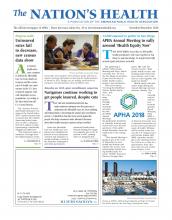Tiredness comes in many forms. Feeling sluggish, sleepy at all hours or even “blah” are common ways that people describe tiredness. No matter what you call it, it’s tough to slog throughout the day in a groggy haze — especially when you have so much to do. Getting to the root of your slump and finding healthy ways to cope will help you keep going even on your most hectic days. You may even find that a jolt of caffeine isn’t necessary.
Tiredness is often a matter of lifestyle. There are many reasons why you could be experiencing it, which often comes down to making healthier choices. Getting enough sleep is obviously a big part of preventing tiredness, but the quality of sleep you get also matters.
Make sure that you’re going to bed early enough that you get a full night’s rest and practicing good sleep hygiene. That means creating a soothing sleep environment with a dark, quiet room free of lights, sounds and other distractions. Making a few simple changes to your sleep habits can go a long way toward helping you feel more refreshed and energized during the day.
Your diet may be another factor contributing to your grogginess. What you eat has a big impact on your physical health as well as your mood, for better or for worse. That donut you eat when you hit a midday slump may give you a little energy boost, but it’s only temporary. Next comes the sugar crash, which is like a roller coaster, says Samuel Grief, MD, a family medicine practitioner at the University of Illinois Hospital & Health Sciences System.
“Once it plummets, you feel kind of weakened, almost sleepy, and maybe worse off — you just don’t feel like doing anything,” he says.
If you’re feeling sluggish, try replacing your midday soda or cookie with a healthy snack. Grief recommends something with a satisfying crunch like an apple, carrots or celery sticks. Nuts are another good choice, he says.
Keep a healthy snack stash at your desk or in your bag so that you always have easy access to nutritious, energizing food. This is especially helpful if you know that you feel tired at a regular time each day. Being prepared will keep you from biting into a candy bar or munching on chips.
“If you feel hungry, there’s nothing wrong with eating at the time that you feel a little low,” Grief says.
Exercise can also make a big difference in your energy levels. When you feel too tired to function normally, exercise is probably the last thing on your mind. It doesn’t seem like it would make sense, but getting some exercise could be just what you need to feel more energetic.

Photo by woman yawning, AntonioGuillem, courtesy iStockphoto
Getting yourself in the right mindset to exercise is the hard part. If you can motivate yourself to get up and move, you’re sure to feel happier and refreshed post-exercise.
Taking even a few minutes to move your body is a boost for your mood and overall health. But if you can, make some time to exercise each day to prevent tiredness in the first place.
Regular exercise can do you a lot of good when it comes to overcoming feelings of tiredness, says Jeremy Smith, MD, FACP, an associate professor at the University of Wisconsin School of Medicine and Public Health.
Even if you can’t make it to the gym, there are easy ways to get a little exercise each day. Smith suggests breaking up your routine to get moving: Walk around your workplace or take a brief stroll outside if possible. Have a drink of water, as dehydration can also make you tired.
In some cases, your tiredness could be caused by a medical problem. Sleep apnea, kidney or liver problems or anemia could be wearing you down, Smith says. Talking to a doctor will help you rule out any medical complications or create an action plan if your tiredness can’t be fixed with better sleep, diet or exercise. You may also be referred to a specialist who can pinpoint the reasons behind your tiredness and offer solutions.
“Even if you might think nothing’s wrong, it’s always a good idea to get an objective opinion,” Grief says.
Simple ways to perk yourself up
Need a quick boost of energy? Many of us feel tired throughout the day, but “there’s a lot of little things you can do to pump up your energy in a healthy way, not overdo it and get back to work,” Grief says.
Here are just a few ways for you to build up the energy you need to get through the day:
◆ Drink a glass of water.
◆ Take a short walk around the block.
◆ Get up to use the restroom or splash some water on your face.
◆ Have a light, healthy snack.
◆ Do a simple stretch.
- Copyright The Nation’s Health, American Public Health Association












